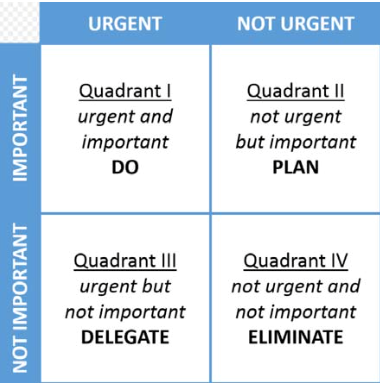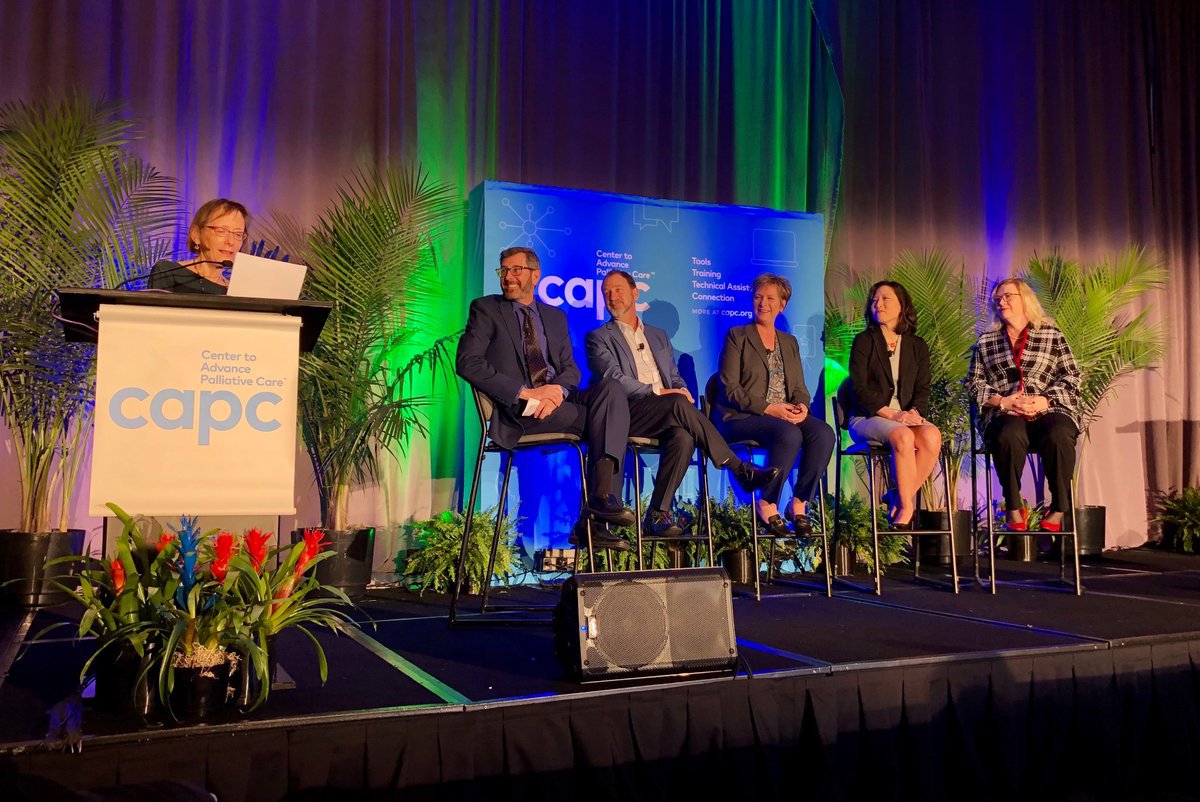5 Lessons for Emerging Palliative Care Leaders

Research has shown that leadership skills are not only desirable, but also imperative for providing the best quality care. While the palliative care field understands the need to develop leadership skills in order to manage teams effectively, it can be difficult to put this into practice with all other competing priorities.
CAPC is committed to supporting palliative care leaders throughout their leadership journey, during regular times and in times of crisis. In 2019, we conducted a survey to assess the needs of palliative care leaders, in order to understand how we can best support them. We also held several leadership sessions during the 2019 National Seminar, which addressed distinct leadership sub-topics including culture transformation, balancing clinical and administrative responsibilities, and putting oneself on the leadership track. Throughout these sessions, we identified and shared 5 actionable lessons for palliative care leaders. We’ve rounded them up and are excited to share them with you in this blog post.
Lesson 1: Know Your ”Why”
CAPC director, Dr. Diane Meier, often asks, “What is your highest and best purpose?” Borrowing from this, self-reflection is critical when developing leadership skills. This activity helps individuals understand both what is most important to them – their personal mission statement – and what they are really good at, in order to match their passion(s) to their best skills, ultimately translating that into their work. Furthermore, this information is vital to understanding personal intention, and how one’s intention or mission contributes to the goals of the broader team.
Self-reflection is critical when developing leadership skills.
That said, the lesson here is that you cannot inspire others to act without having a fully developed understanding of your own purpose and talents, and why it is important. Both this individual reflection activity, as well as Simon Sinek’s book, Start With Why, were popular references during leadership sessions.
Lesson 2: Cultivate Relationships
How do you articulate your vision in a way that influences stakeholders and motivates your team? How do you connect to the right people for guidance and opportunities? Several sessions answered these questions with a straightforward answer – by talking to people.
You can strengthen your understanding of stakeholder priorities and motivations, as well as how others perceive you, by collecting feedback from colleagues, and understanding how to accept it, constructively – particularly when it is unsolicited. If you’re interested in learning more, the book, Thanks for the Feedback, provides guidance on how to approach this lesson.
As for connecting to the right people and cultivating relationships, a great way that we normally recommend doing this is at networking events such as the CAPC National Seminar (scheduled for November 11-13, 2021), as well as other conferences and meetings held by professional organizations relevant to your role and career path. This may include virtual and in-person meetings of the American Academy of Hospice and Palliative Medicine, Hospice and Palliative Nurses Association, and Social Work Hospice and Palliative Network, to name a few. Though in-person events have been canceled due to COVID-19, organizations are working to present virtual events with networking opportunities.
Lesson 3: Make Time for Administrative Tasks and Manage Time Thoughtfully
Taking time to prioritize administrative tasks may seem impractical when there are pressing patient needs to be met. However, in the long run, it ensures that day-to-day activities align with the broader goals of the team and organization overall. When there are clear cut processes that foster stability for your team, they will be able to use their time effectively and focus on patients.
Part of managing your time means understanding that there will often be times where it ends up being about what is most important on a specific day [...]
Part of managing your time means understanding that there will often be times where it ends up being about what is most important on a specific day, but knowing what you are working towards (refer to Lesson 1), and who to work with (refer to Lesson 2), will alleviate some of the pressure. Using administrative time for both strategic planning, as well as managing day-to-day operations and work flow, can address many concerns and help reduce burnout. Understanding how to manage what is urgent and important, as outlined by Stephen Covey in The 7 Habits of Highly Effective People, is a helpful first step for this lesson (refer to table).

Lesson 4: Address Imposter Syndrome
Throughout the leadership sessions, there were anecdotes from accomplished palliative care leaders about overcoming the feeling that they do not know enough to be where they are, and may not be ‘worthy’ of the role (imposter syndrome). It was a revelation that made them vulnerable, and resulted in many nodding heads from fellow panelists. The most frequently shared advice for this was to focus on your vision and the tasks required to work towards that vision, so that you are only dealing with what is objective and real. In addition, using your support system (refer to Lesson 2) to discuss shared experiences and being kind to yourself, as you would be to others who approached you with the same mindset, resonated with many.
Focus on your vision and the tasks required to work towards that vision, so that you are only dealing with what is objective and real.
Lesson 5: Develop Your Leadership Skills
Most clinical training does not formally teach leadership competencies; however, having palliative care skills translates into capabilities that are necessary for leaders. One such skill is communication, which enables you to empathize with the person you are talking with (e.g., knowing what is important to them). The first webinar in the CAPC Leadership Series provides examples of this, including emotional intelligence and communication skills. In order to build upon this foundation, several CAPC National Seminar sessions recommended conducting a personal needs assessment and then developing a plan to address them – again very similar to the work of palliative care clinical consultation!
[...] it is important to identify your individual needs – to determine which new or strengthened skills are relevant for your professional development.
Similar to performing a needs assessment before developing or expanding palliative care programs, it is important to identify your individual needs – to determine which new or strengthened skills are relevant for your professional development. From there, you can build and commit to a plan to address them. Finding a mentor or coach who can provide insight and suggest helpful resources is another recommendation that was shared in several sessions (refer to Lesson 2).
Additionally, CAPC has developed the following leadership resources:
- Leadership Skills in Palliative Care, including resources for strategic planning, supporting your team, and more.
- COVID-19 Response Resources for Palliative Care Leaders, including resources for leading through a crisis and planning forward.
- Virtual Office Hours, small-group consulting calls with leading subject matter experts on a wide variety of challenging topics, such as Managing Through the COVID-19 Crisis.
CAPC Leadership Series
During a keynote at CAPC National Seminar, we introduced the Leadership Series panel, comprised of Betty Ferrell, PhD, FAAN, FHPN; Michael Fratkin, MD; Tammy Kang, MD, MSCE; and Donna Stevens, MHA. Not only did the panel leaders reinforce the lessons outlined above, but they also discussed the need to integrate palliative care into the broader health system, determine how to find opportunities to add value, and build self-care into the workflow.

These leaders come from diverse settings and disciplines, and are currently participating in a newly-launched CAPC webinar series, focused on leadership development. The topics are determined using feedback from the leadership survey mentioned earlier, along with insight from palliative care leaders at all levels. Topics to be addressed include self-knowledge, general skills for running a palliative care program, cultivating resiliency, and developing partnerships.
In Conclusion
Effective leadership is the key ingredient to the future sustainability and quality of palliative care. We look forward to your participation in this interactive series as we delve into the topics outlined above, and add to this list of lessons in support of your leadership journey!
Effective leadership is the key ingredient to the future sustainability and quality of palliative care.
